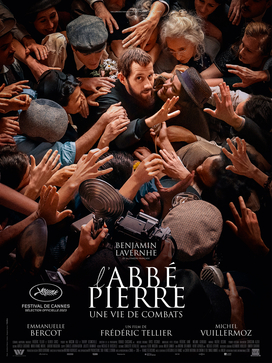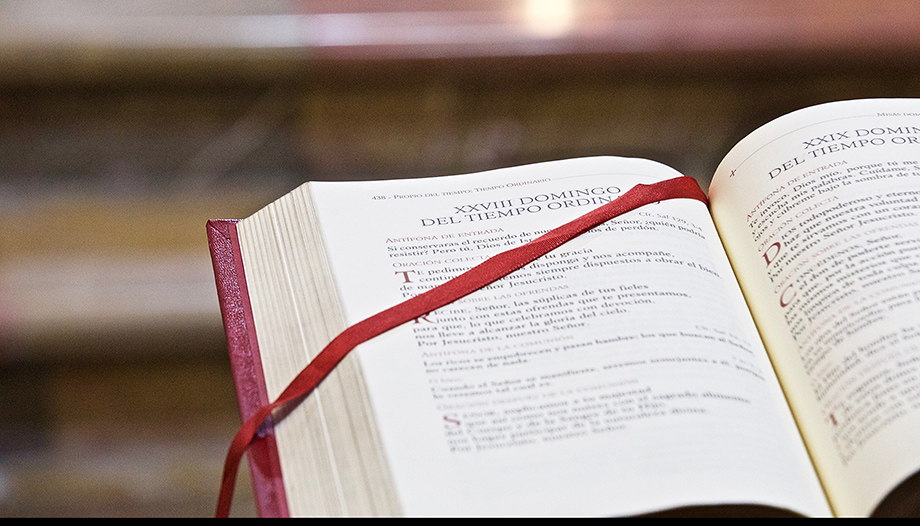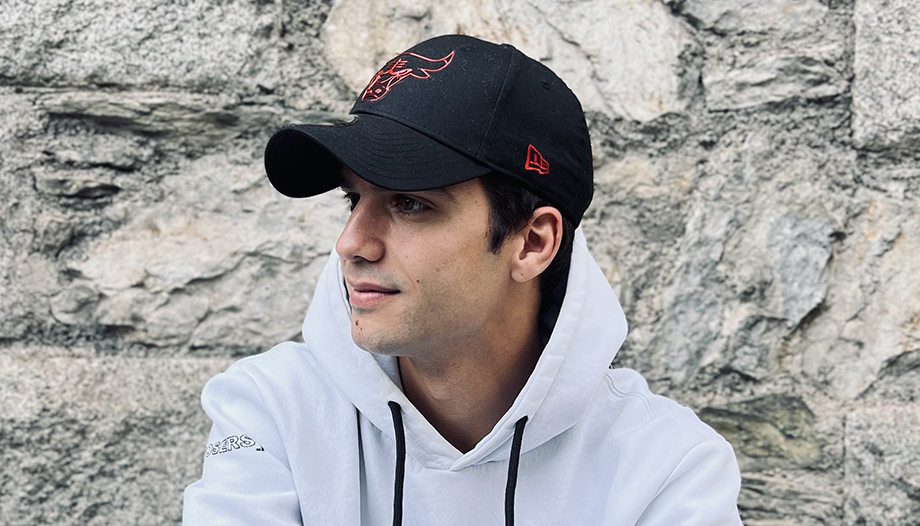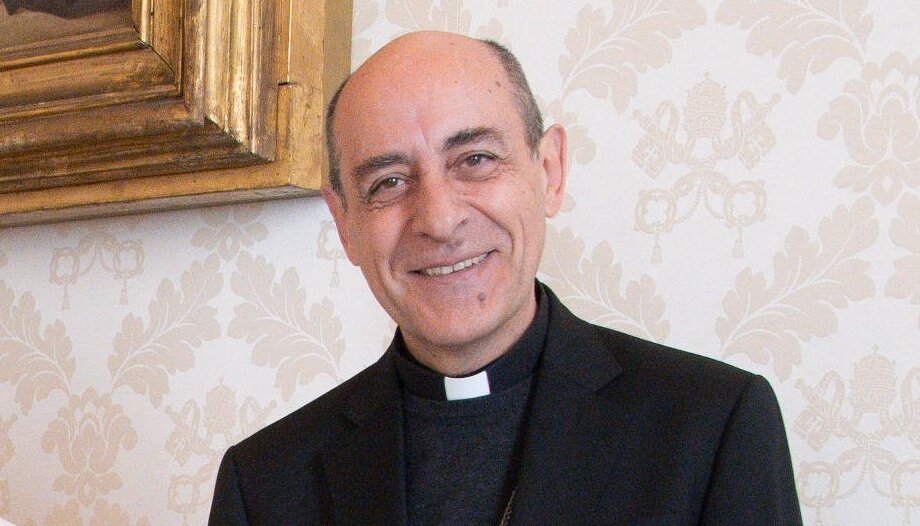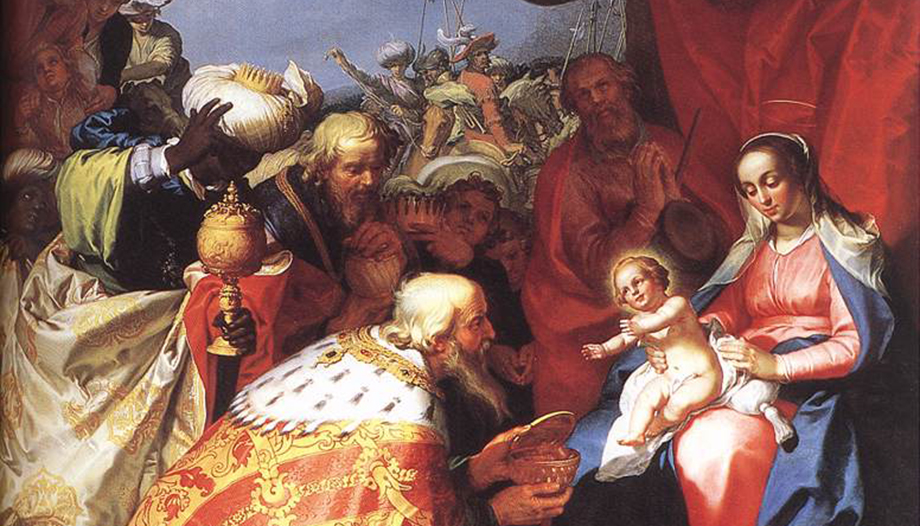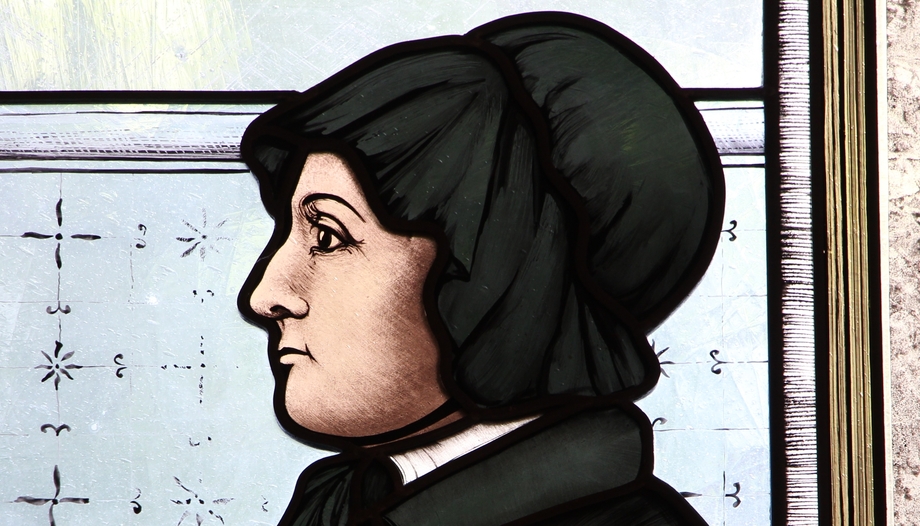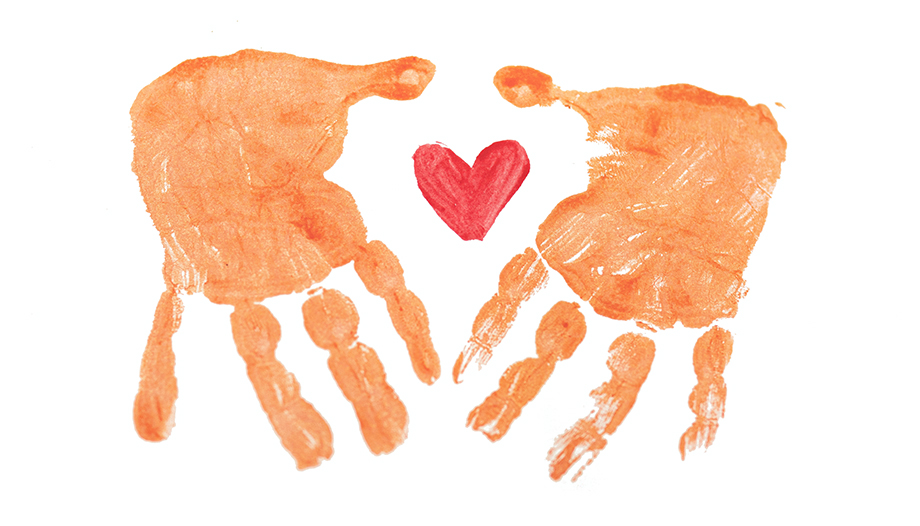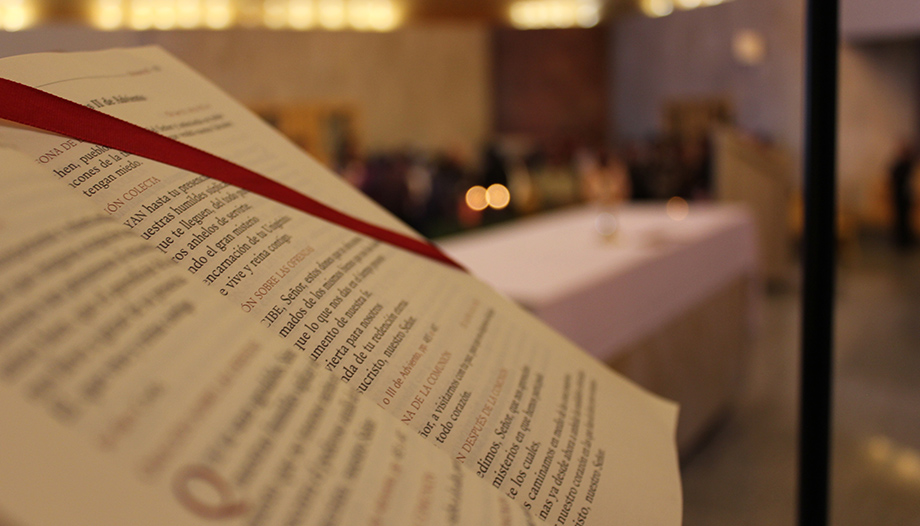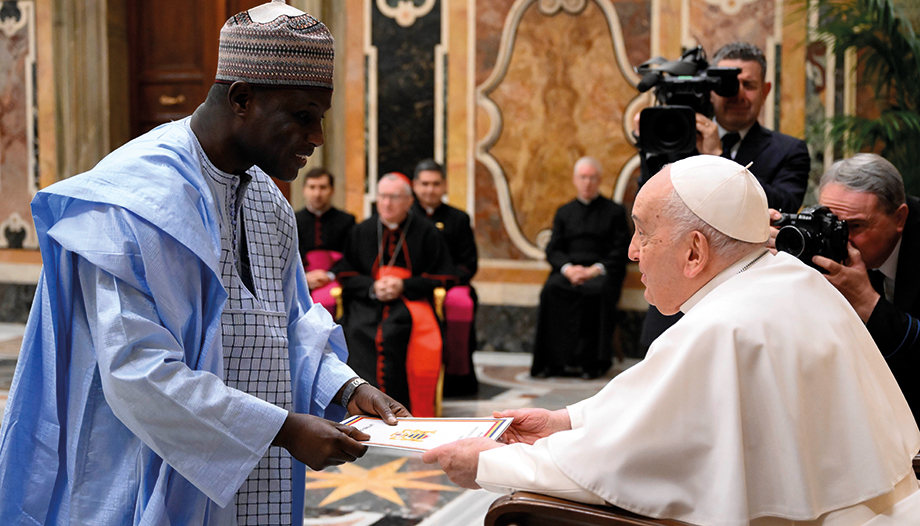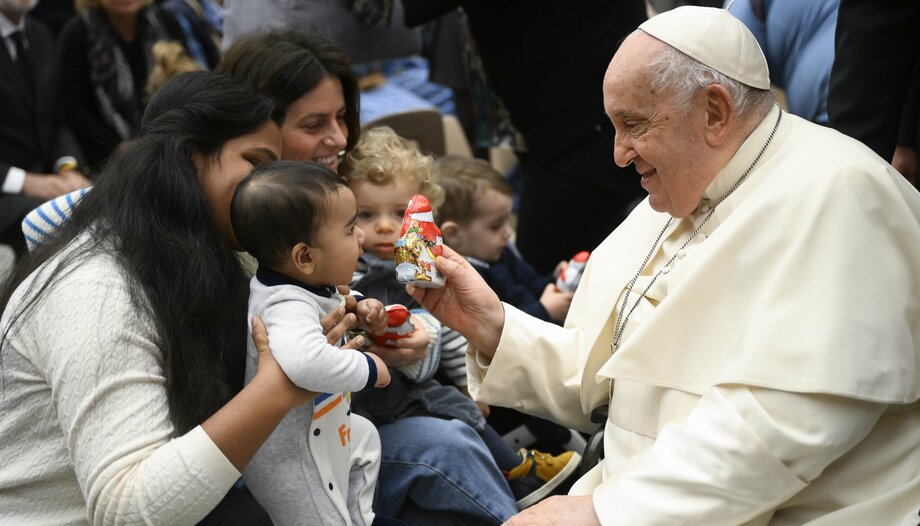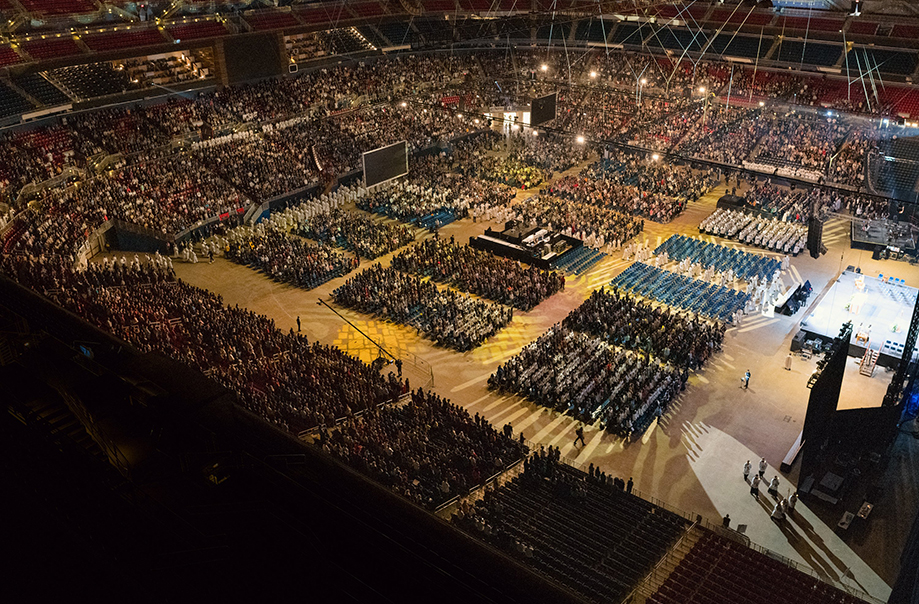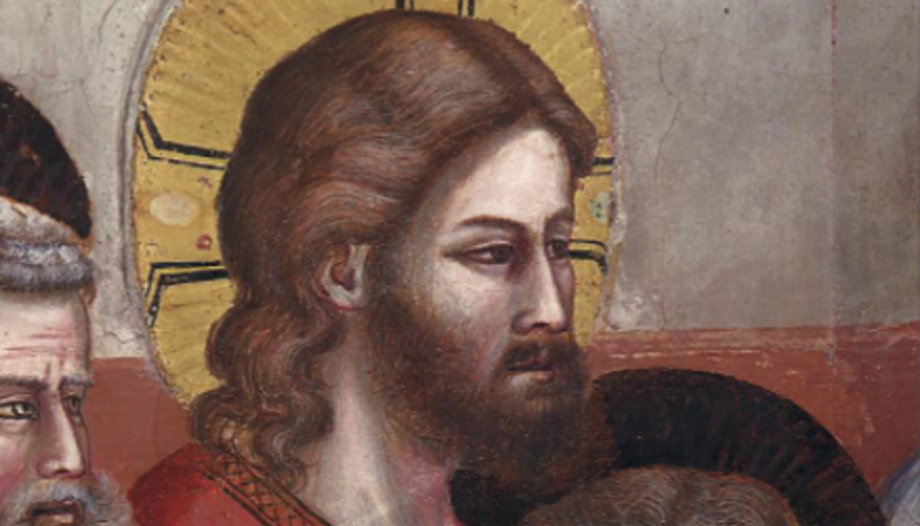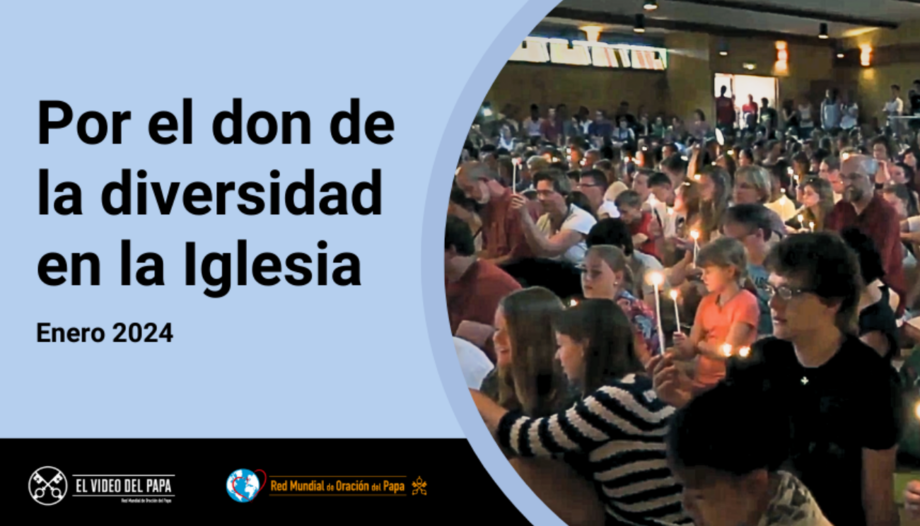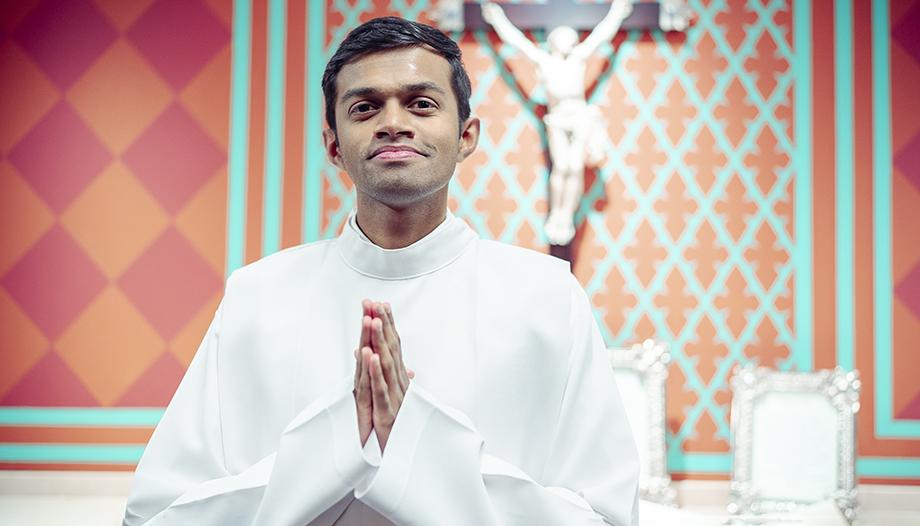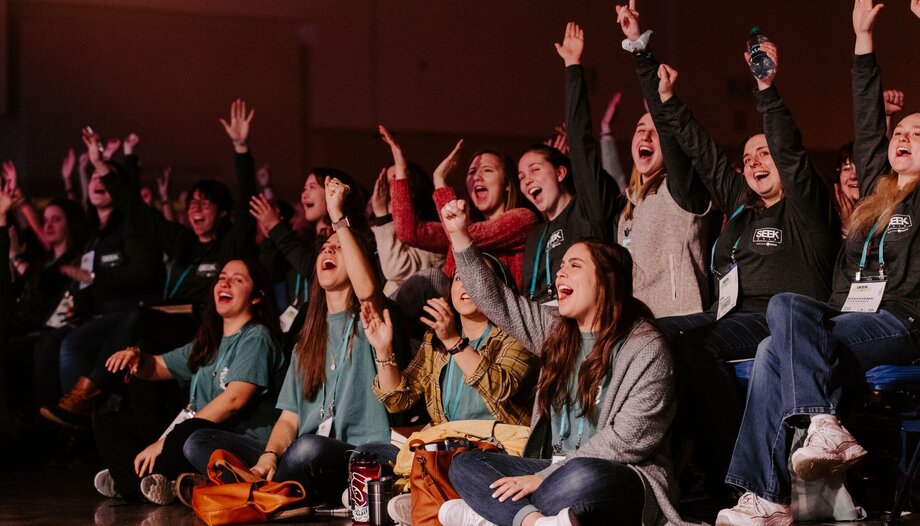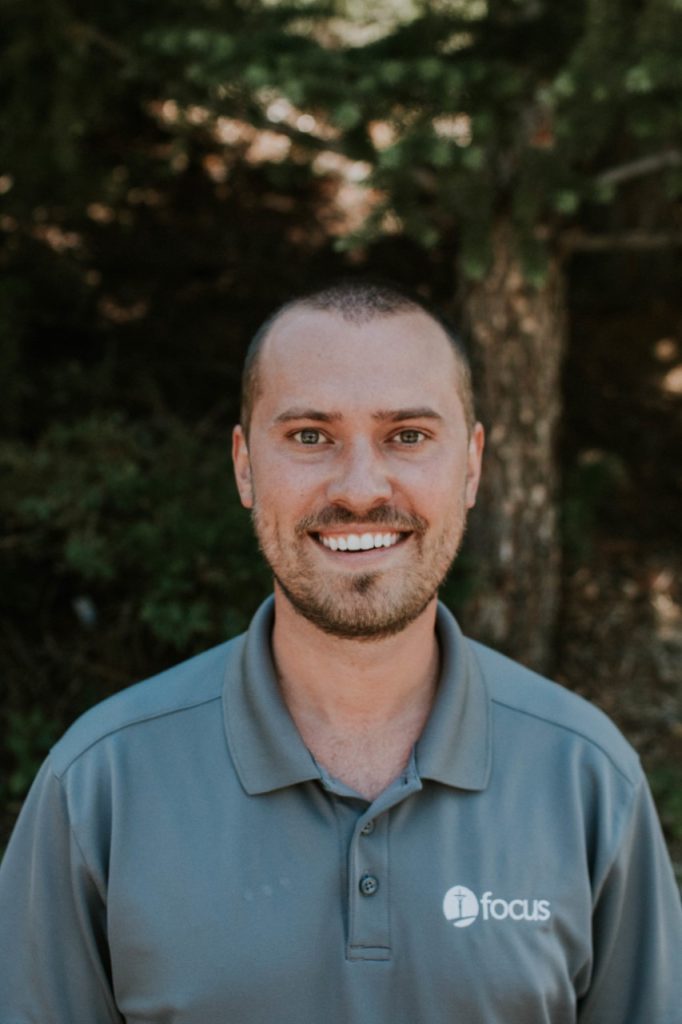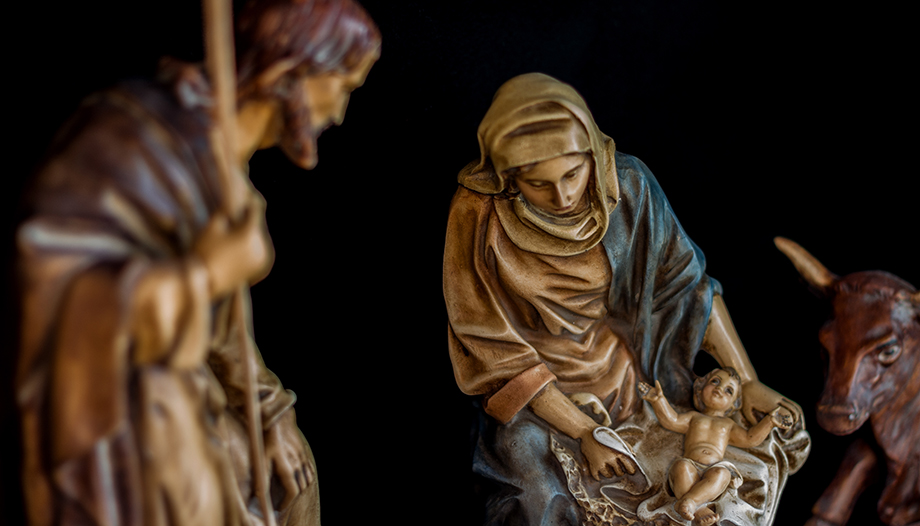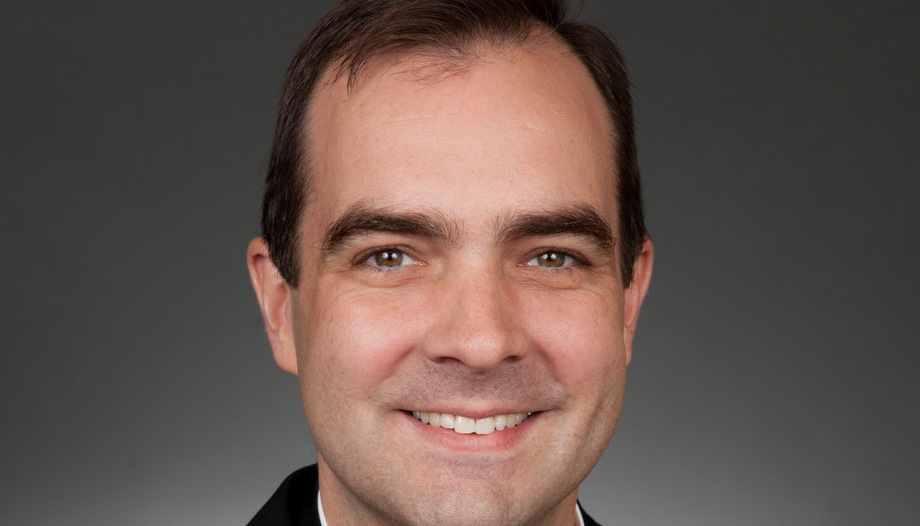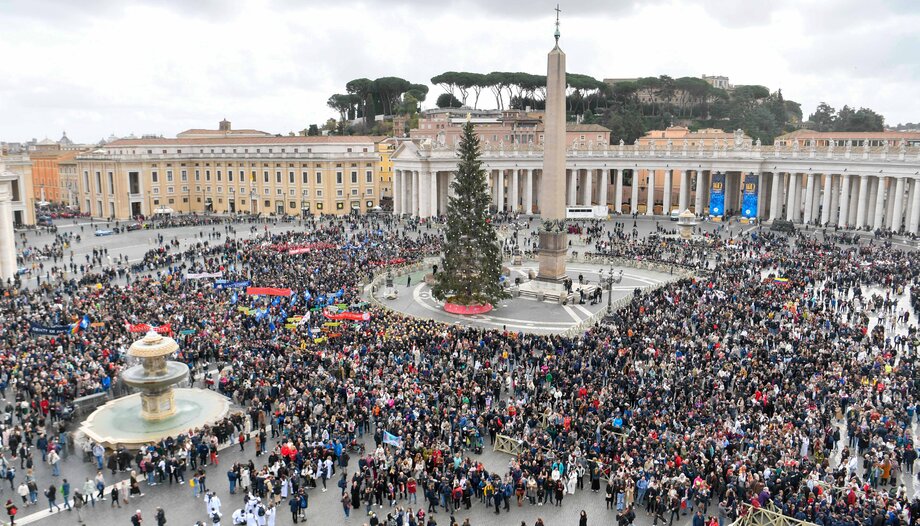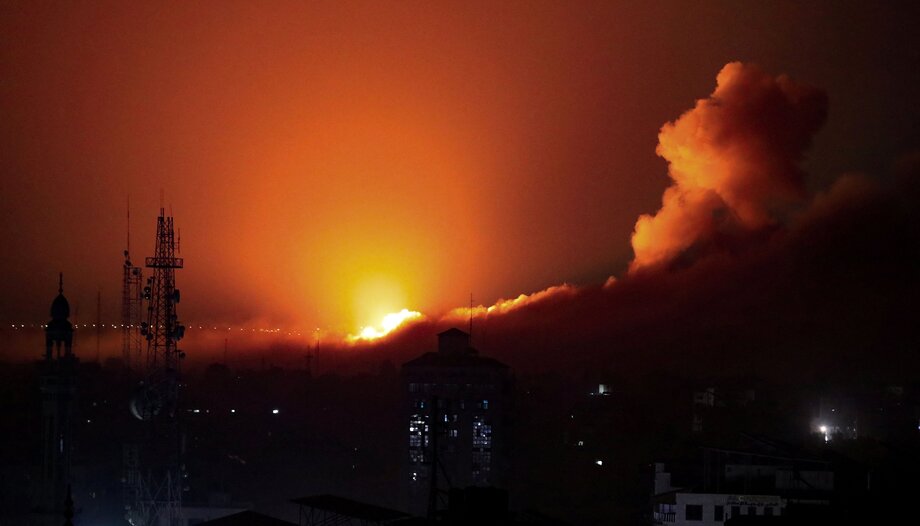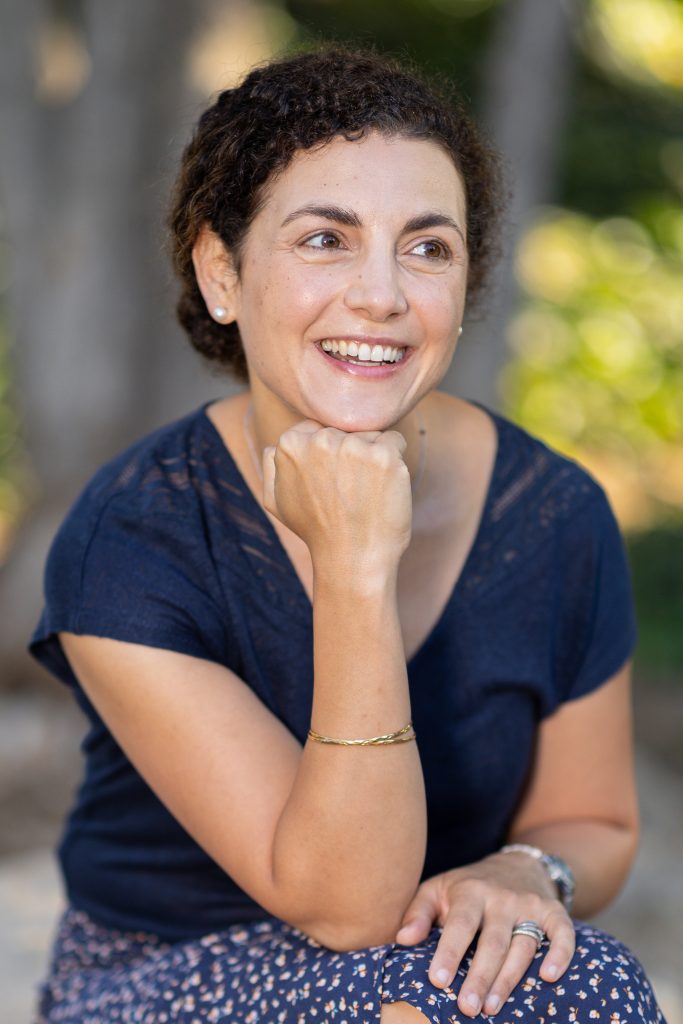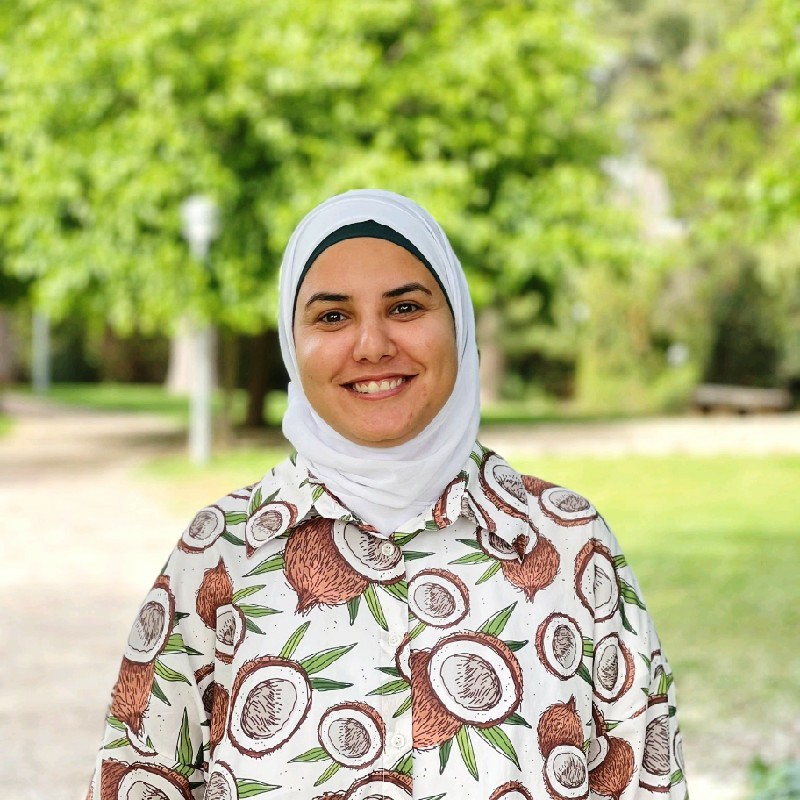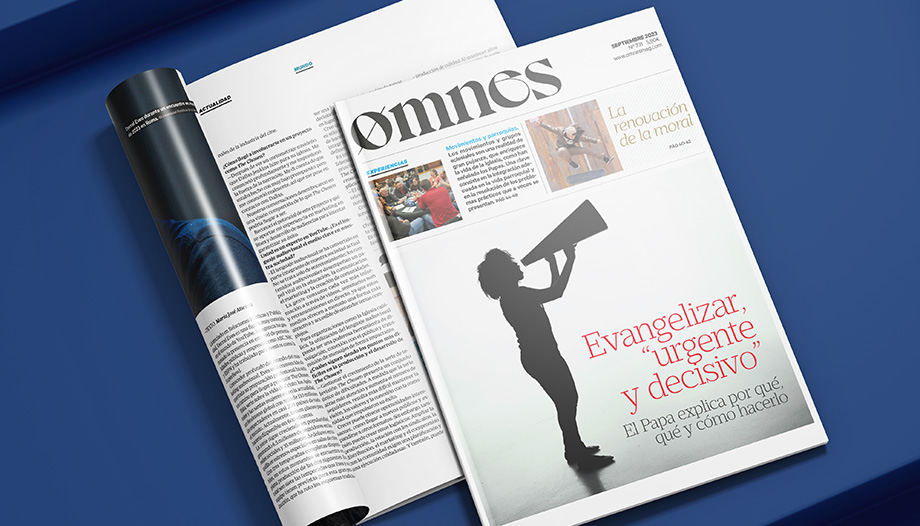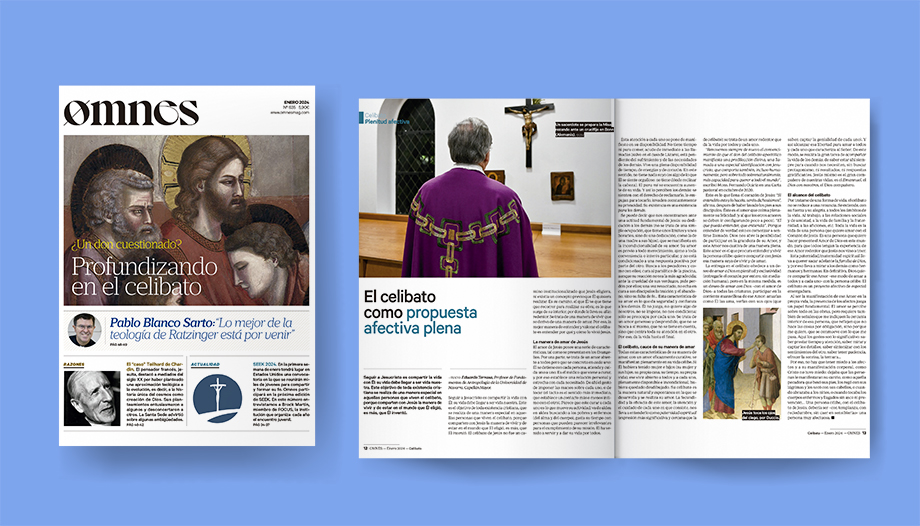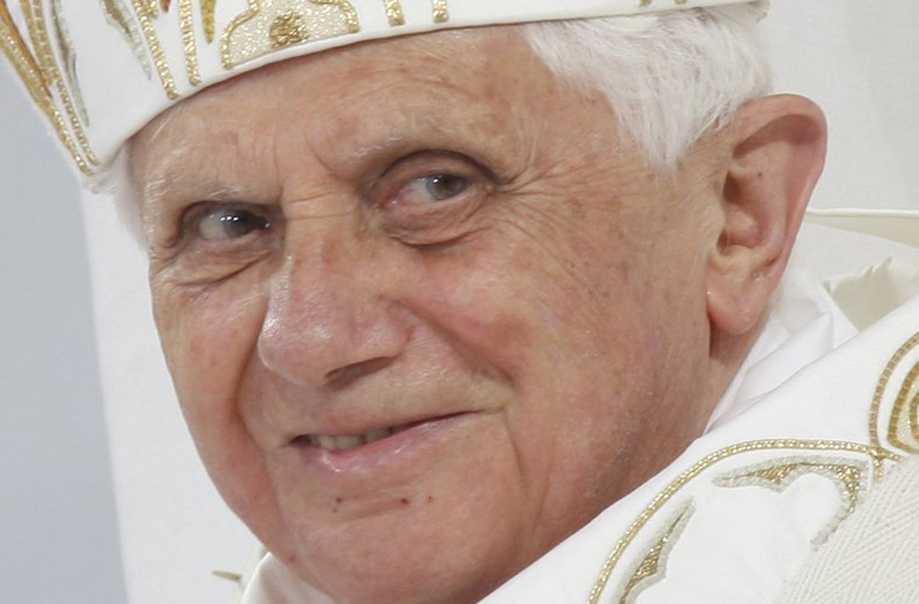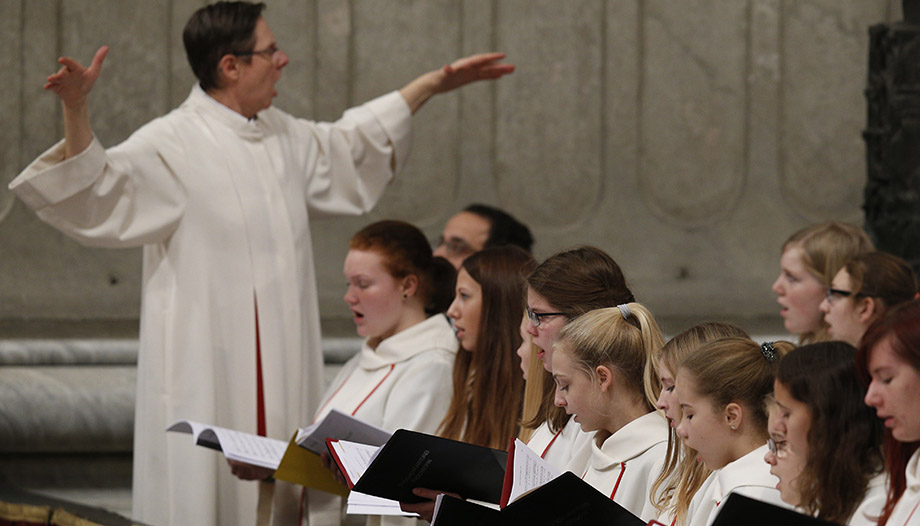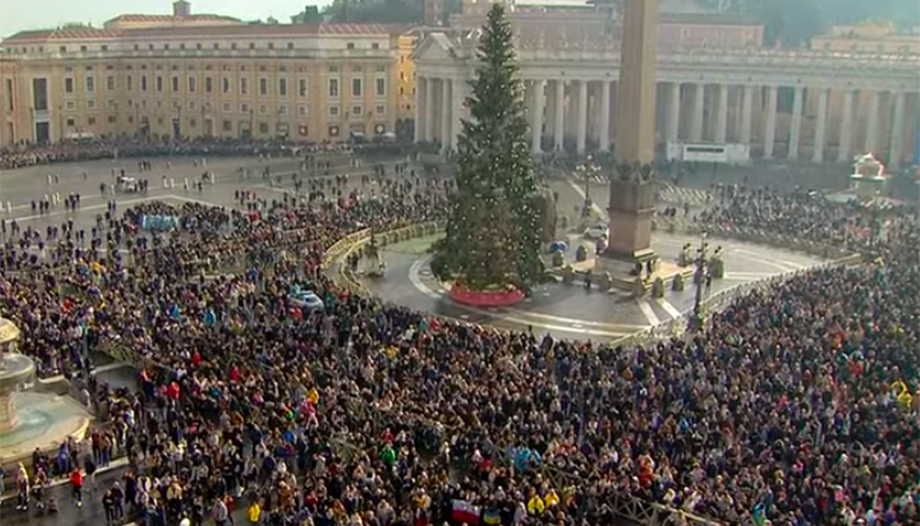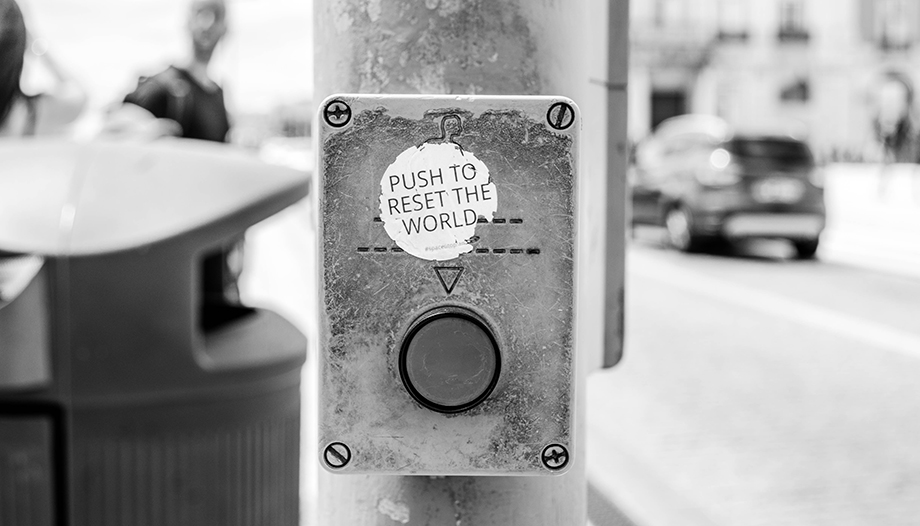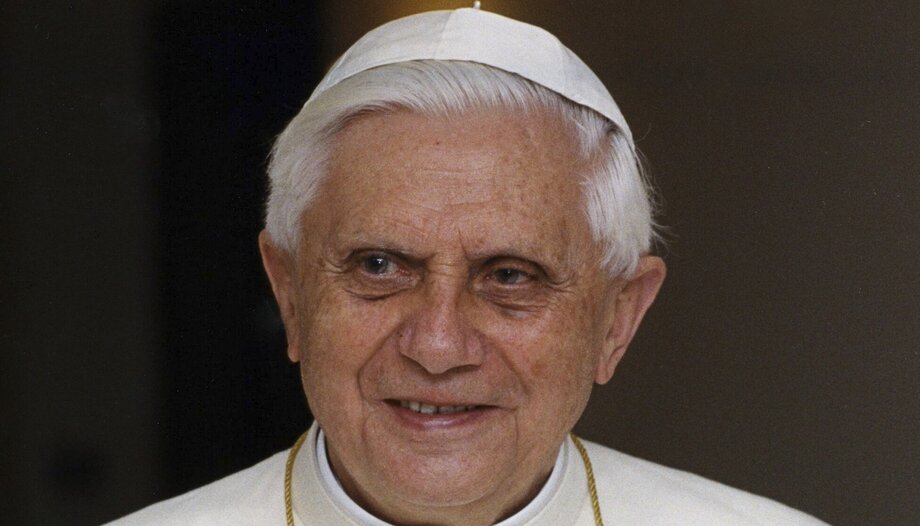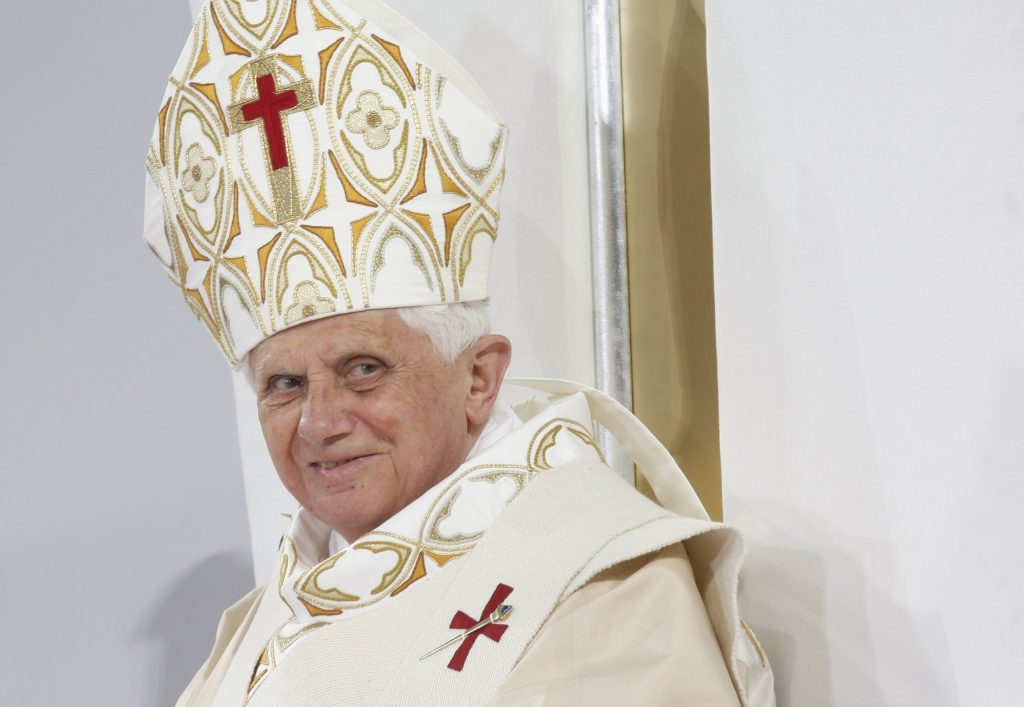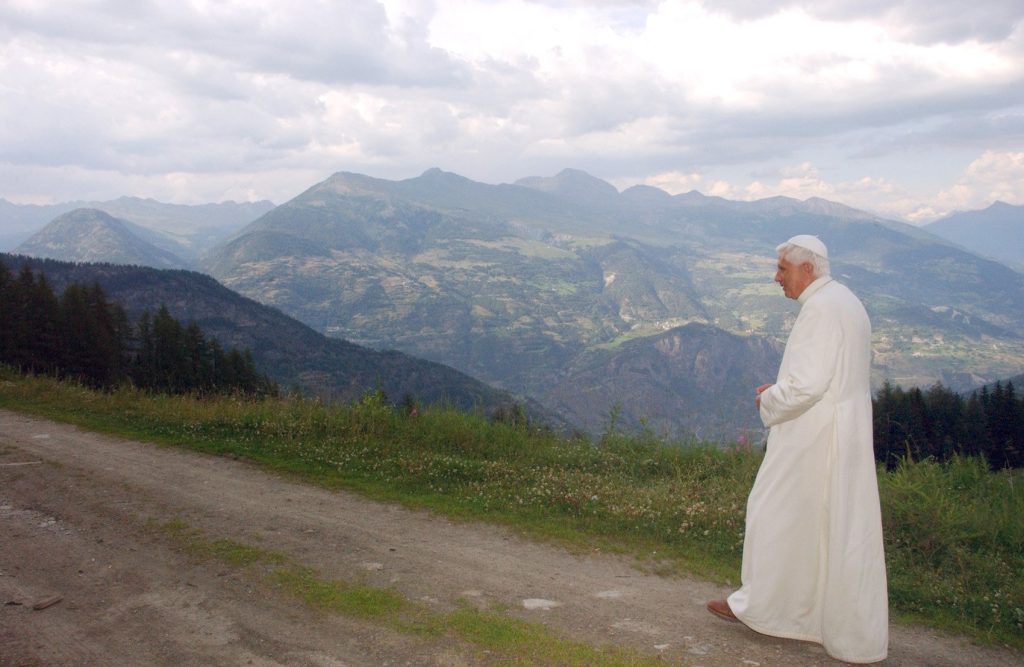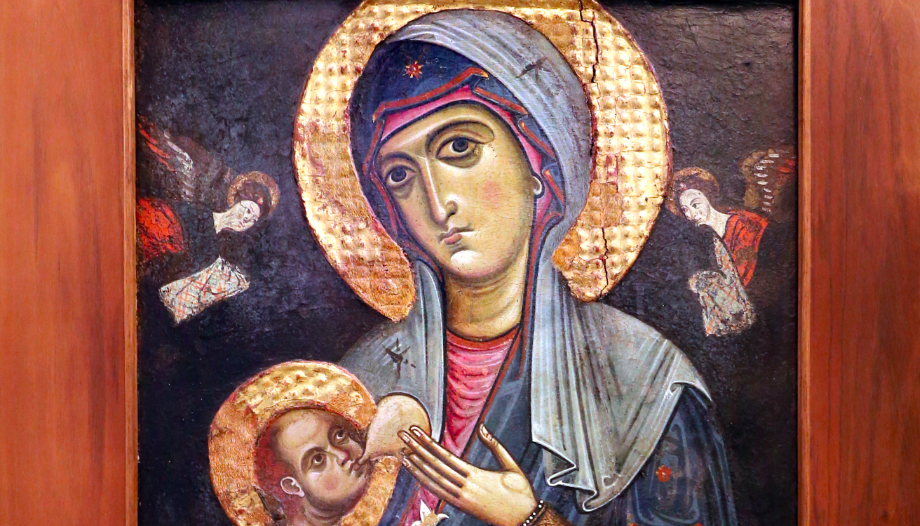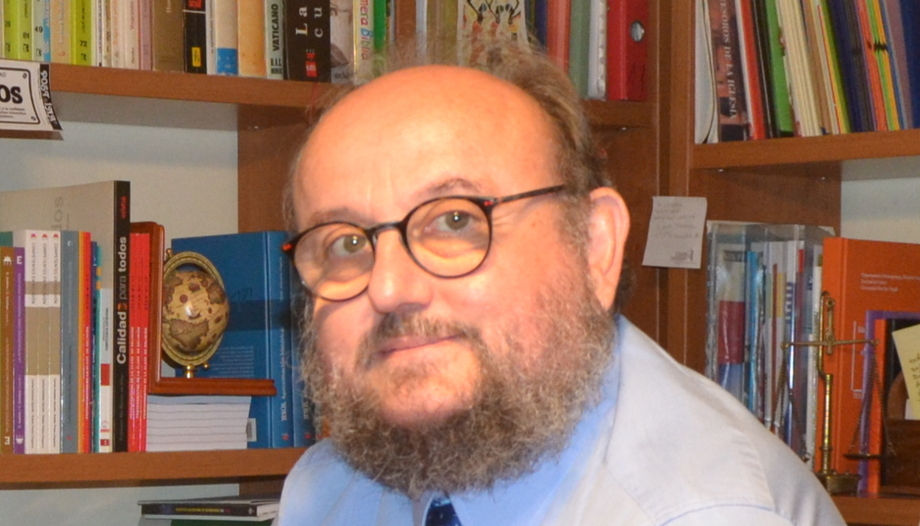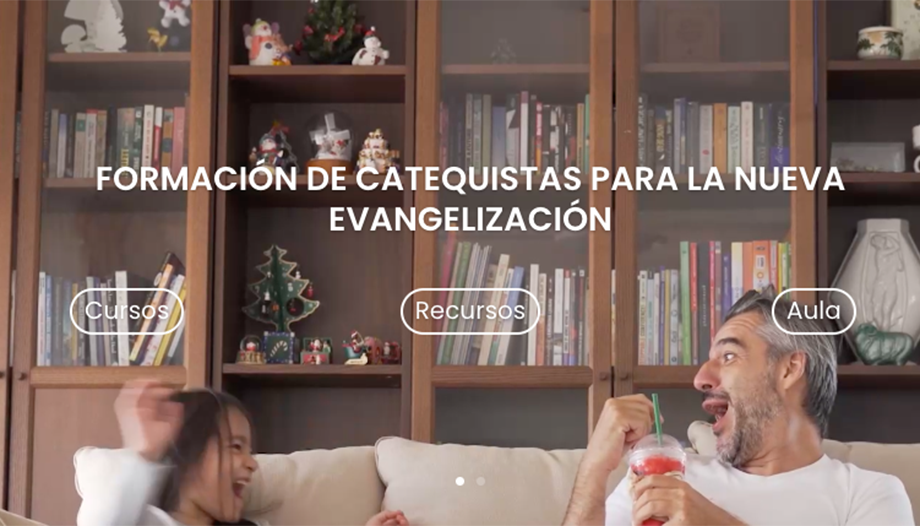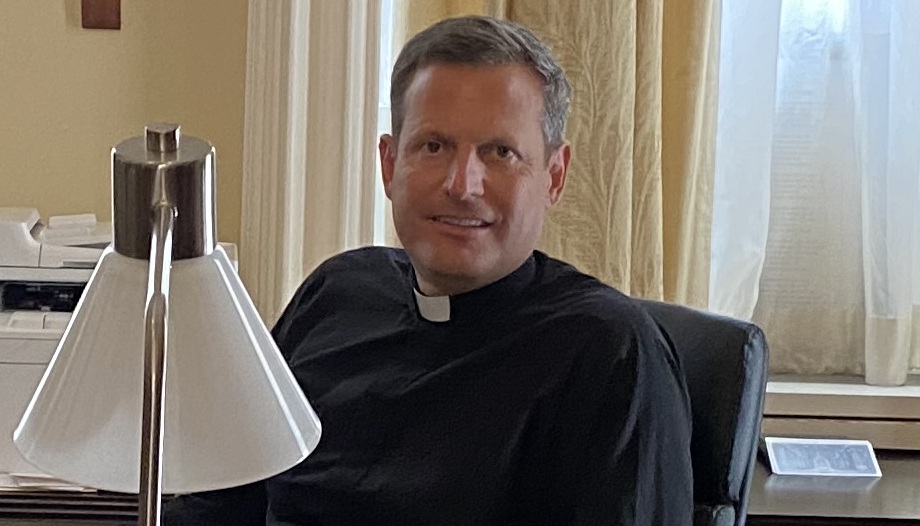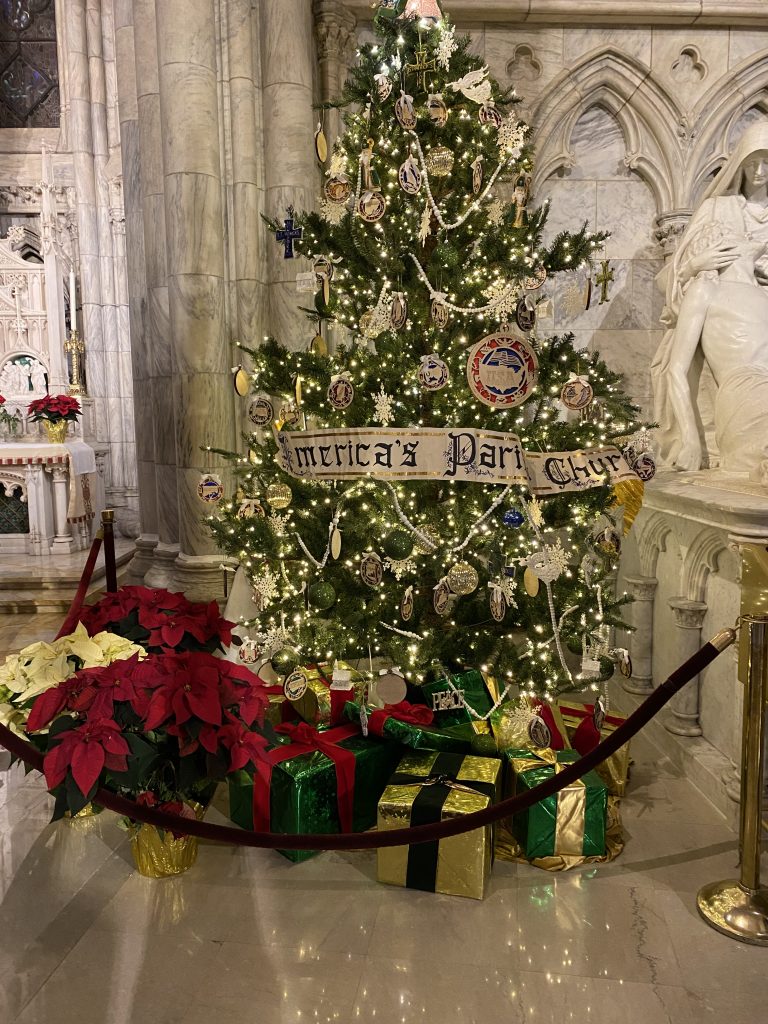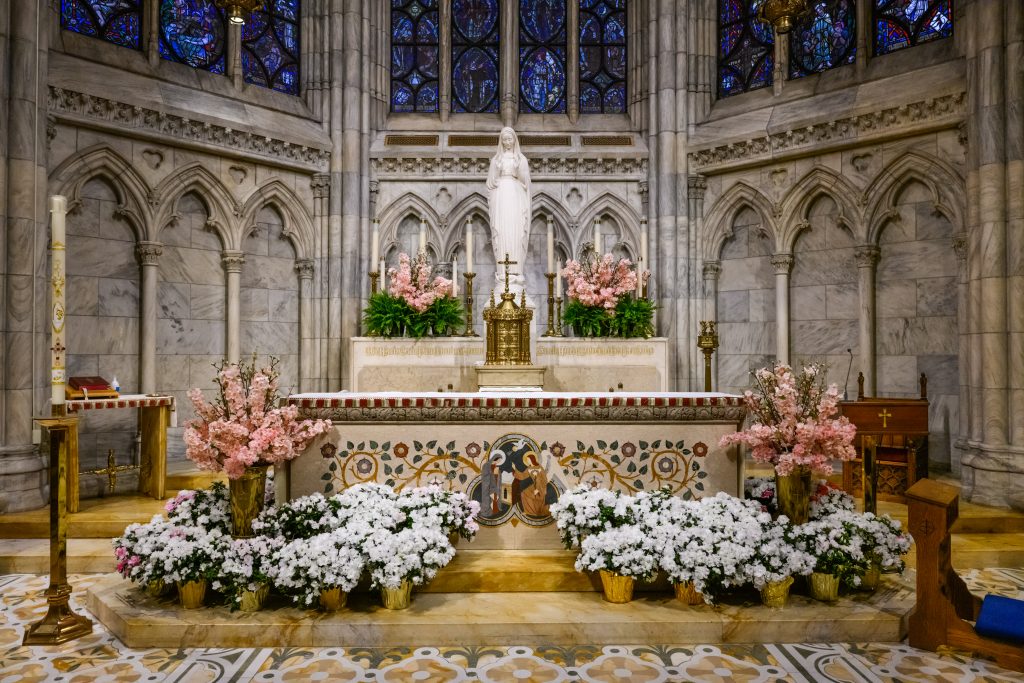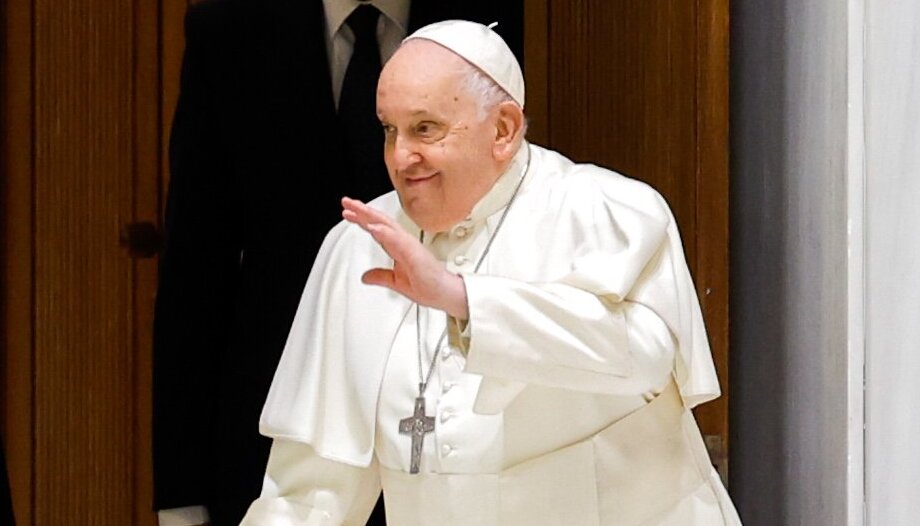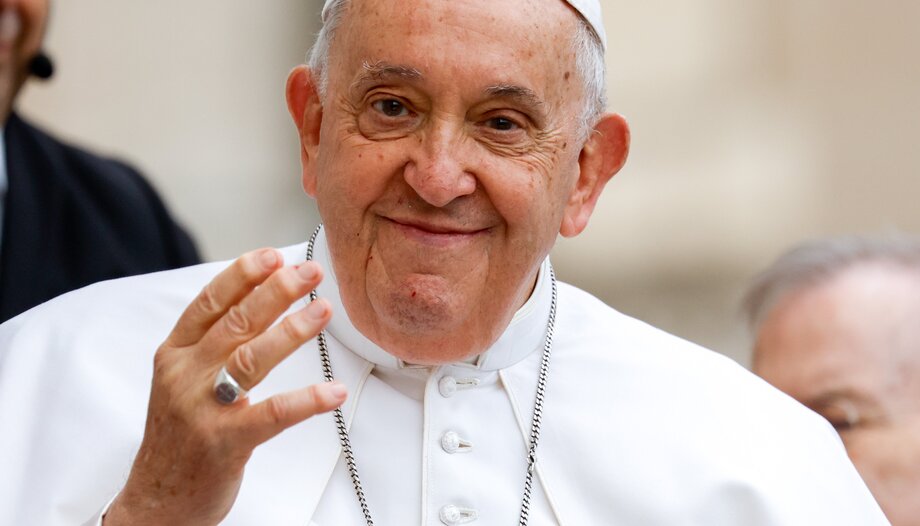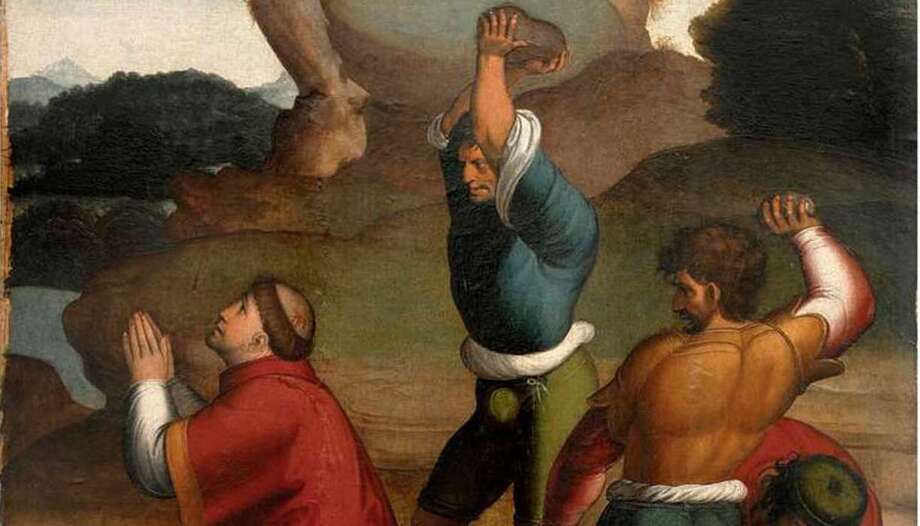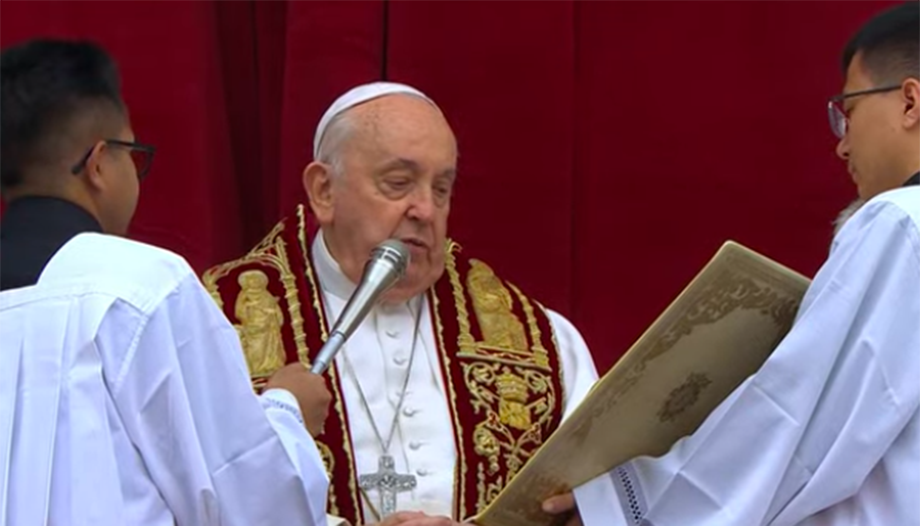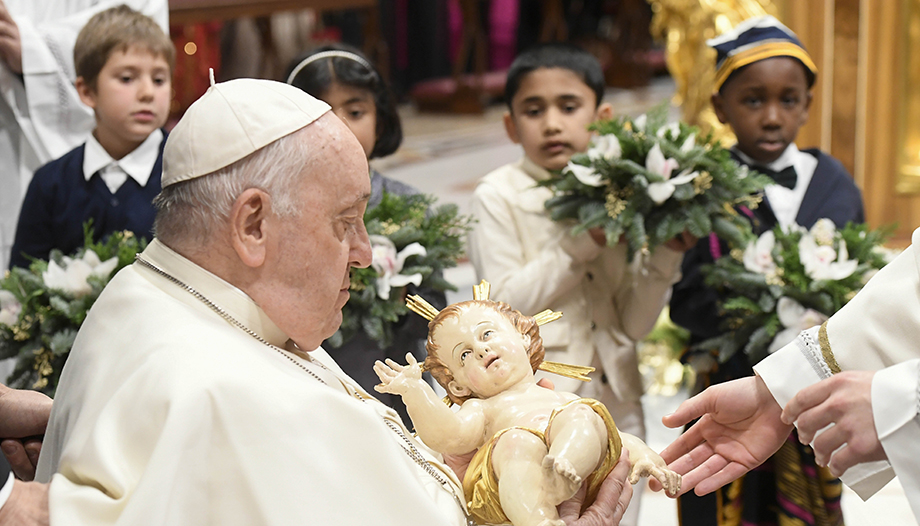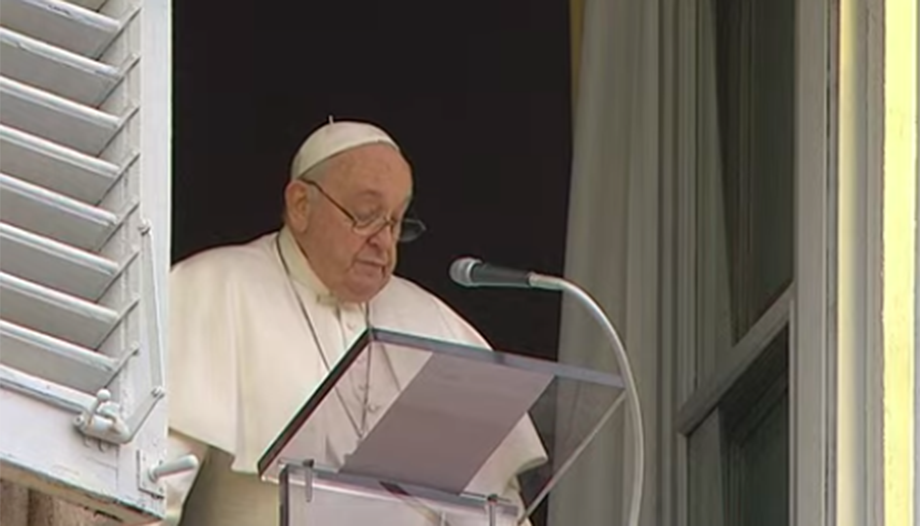"Urbs Aquensisurbs regalis, regni sedes principalis, prima regum curia".. "City of Aachen, royal city, chief seat of the kingdom, first court of kings." Thus begins the hymn composed in 1165 for the canonization of Charlemagne, which is still sung today at both secular and liturgical celebrations.
Aachen, royal seat
The "Hymn of Aachen" highlights the significant importance of this city, especially during the time of Charlemagne in the late eighth and early ninth centuries.
At that time, the Frankish (pre-German) kingdom had no fixed capital, being an itinerant monarchy to maintain proximity to the vassals. The king and his entourage moved from one "Pfalz" (royal palace) to the next; the time spent in one or the other varied greatly.
Aachen stood out as a place of residence, not only because of its geopolitical location, but also because of the personal preference of Charlemagne, who, affected by gout, found relief in the thermal waters with medicinal properties since Roman times.
The name "Aquae Granni" or "Aquisgrani", from which both the Spanish and Italian names of the city derive, refers to the thermal waters associated with the Celtic god "Grannus". The German name "Aachen" or the Dutch "Aken" also allude to the thermal waters.
The Carolingian Renaissance
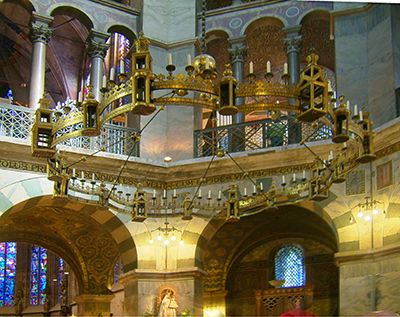
The construction of the "Pfalz" in Aachen began with Pipin the Short, Frankish king from 751 and father of Charlemagne (747/748-814). However, it was the latter who gave it the decisive impetus by making it his winter residence as early as the first of his reign in 768.
From 777, the royal "curia" hosted leading scholars from all over Europe (Alcuin, Paulinus II of Aquileia, Paulus Diaconus, Theodulf of Orleans). It became a center of Latin scholarship (theology, historiography, poetry), to which the new writing, the so-called "Carolingian minuscule" script, particularly contributed, and the inspiration spread from there to the whole Frankish Empire. Thus began the so-called "Carolingian renaissance", after decades of cultural decline.
Palatine Chapel of Aachen
One of the great undertakings undertaken by Charlemagne was the construction of the palatine chapel ("Pfalzkapelle"), the forerunner of today's Aachen Cathedral.
The octagonal building, erected between 795 and 803, was modeled on Byzantine churches, especially San Vitale in Ravenna.
Built on the remains of a Roman thermal complex, it used building materials from various parts of the Frankish Empire, including "spolia" such as ancient columns and other Roman building materials.
The interior octagon is surrounded by a hexadecagonal construction (16-sided polygon), crowned by an imposing dome.
At 31.40 meters high, the chapel was not only unparalleled north of the Alps; it would take more than 200 years for a similar building to be constructed.
The 1:1 ratio between height and width of the central construction alludes to the harmony of the heavenly Jerusalem: "the length, height and breadth of it are equal" (Rev 21:16).
The palatine chapel will be the place of coronation of the German kings between 936 and 1531. More than the presentation of the crown and other imperial insignia, the constitutive act is the enthronement of Charlemagne on the throne.
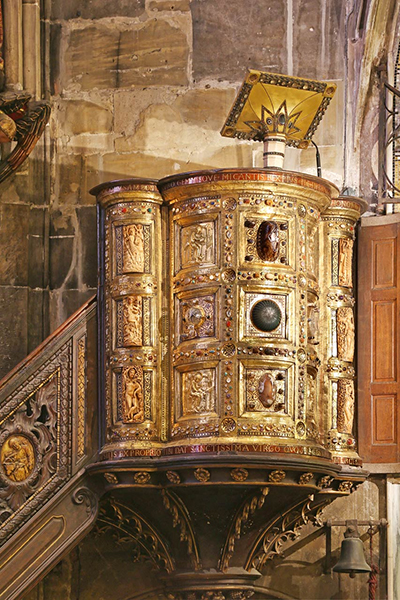
Especially in the first centuries, until the "Investiture Quarrel" (1075-1122) achieved the division between "throne" and "altar" - one of the most significant milestones of Western culture, considered by some as its founding event - the coronation/ enthronement has a sacred character.
According to one of the oldest coronation ordinances, used for the Ottonians in the 10th century, the king was acclaimed with the words "Thou art Melchizedech", the paradigm of the personal union between king and priest.
At the coronation Mass, the king read the Gospel and wore the episcopal miter. For this reason, Henry II ordered the construction, between 1002 and 1014, of the pulpit covered with gold, precious stones and ivories, one of the most splendid treasures of Ottonian art, and the most precious of the present cathedral, together with the altar with the front ("Pala d'oro") of the 9th century and the "Barbarossa candlestick", donated by Emperor Frederick I "Barbarossa" on the occasion of the canonization of Charlemagne.
Pilgrimage destination
In addition to being the eternal resting place of Charlemagne and Otto III (died 1002), today's Aachen Cathedral stands out as one of the most important places of pilgrimage since the Middle Ages.
Four textile relics are venerated in Aachen (Virgin's dress, swaddling clothes of the Infant Jesus, perizonium or canvas of the crucifixion and the cloth used in the beheading of St. John the Baptist), which probably arrived in Aachen under Charlemagne.
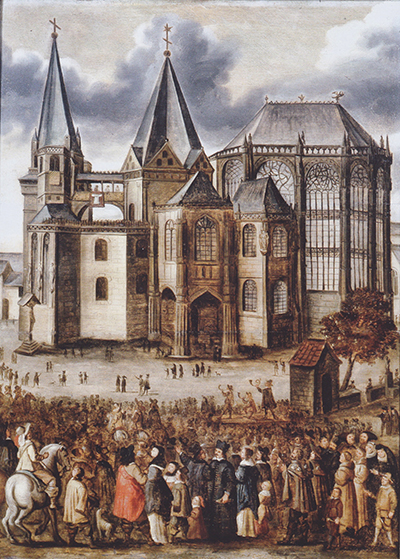
Frankish imperial annals relate that a legendary treasure of relics was sent from Jerusalem for the consecration of the Palatine Chapel in 799.
Although pilgrimages were already taking place at that time, they experienced a great impulse in the 13th century, during the reign of Emperor Frederick II.
Devotion to the relics also had constructive repercussions. Although they had been displayed from the tower gallery since 1322, the construction of the Gothic choir began in 1355, since the Carolingian building was insufficient to accommodate the large number of pilgrims visiting Aachen.
This construction was completed in 1414 and has remarkable dimensions: 25 meters long, 13 meters wide and 32 meters high. Its outer wall, largely divided by stained glass windows, is 25.55 meters high, one of the highest Gothic style in Europe.
With more than 1,000 square meters of glass, it is known as the "Aachen Glass House". Simultaneously, a set of chapels was erected around the octagon to offer pilgrims a space for devotion and prayer.
After the devastating plague epidemic that struck Europe from 1349 onwards, pilgrimages were held every seven years. In the 14th and 15th centuries, Aachen became the third most important pilgrimage destination in the West along with Santiago de Compostela and Rome.
The last one was scheduled for 2021, but due to COVID restrictions, it was postponed to June 2023. However, the next pilgrimage is planned for 2028, resuming the original cycle.
Marian dedication
The dedication of the Palatine Chapel or Church of the Virgin as a cathedral is relatively recent, as Aachen did not become an episcopal see until the 19th century. Until then it was under the jurisdiction of the diocese of Maastricht/Liege or that of Cologne.
It was Napoleon who designated Aachen as the episcopal see of the diocese he founded in 1802 for the new departments of Roer and Rhine and Moselle. In 1821, however, the diocese was abolished by the papal bull "De salute animarum" and incorporated into the archbishopric of Cologne.
The re-establishment of the diocese of Aachen would not take place until August 13, 1930, by decision of Pope Pius XI. Joseph Vogt became the first bishop of the diocese after his election in December 1930. Since September 2016, Helmut Dieser, until then auxiliary bishop of Trier, has held the episcopal see.
Today's Aachen Cathedral was recognized as a World Heritage Site in September 1978, during the second session of the UNESCO committee.





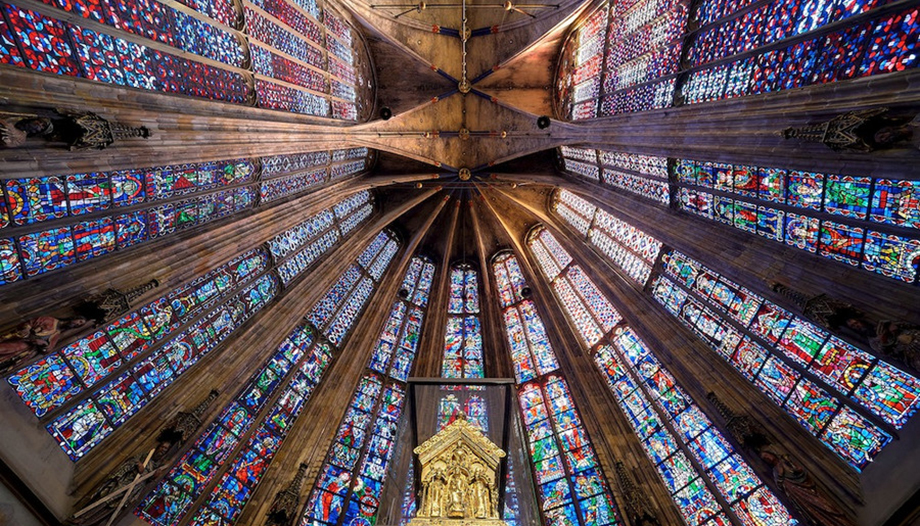





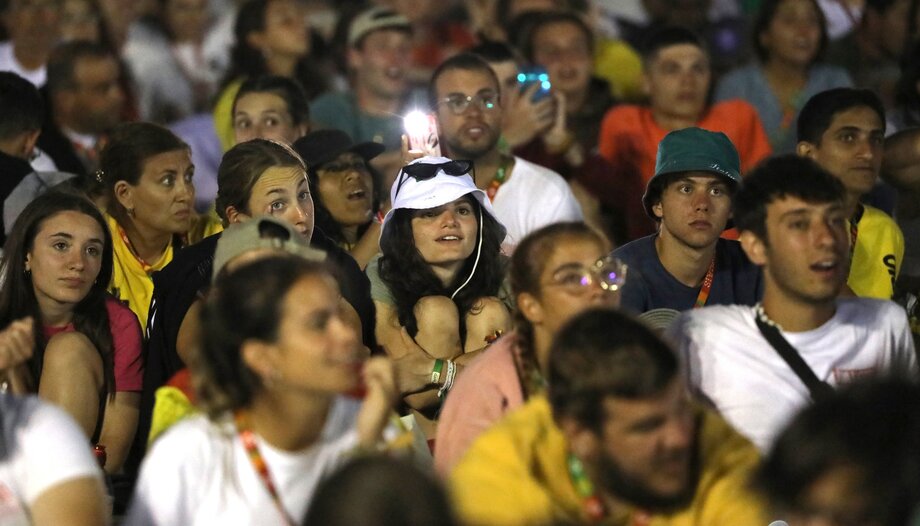
 Brock MartinYoung people are the future leaders of the Church".
Brock MartinYoung people are the future leaders of the Church".


